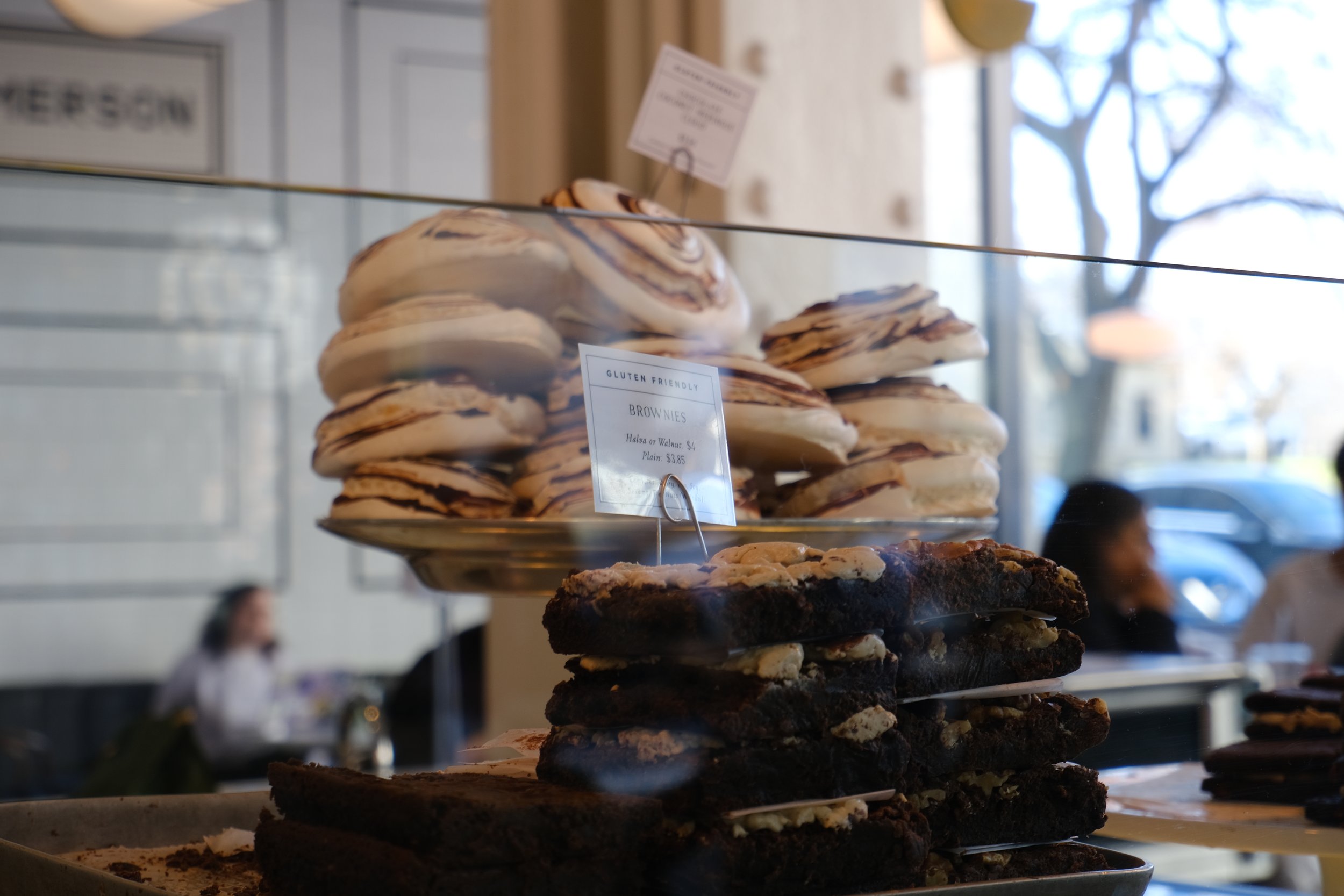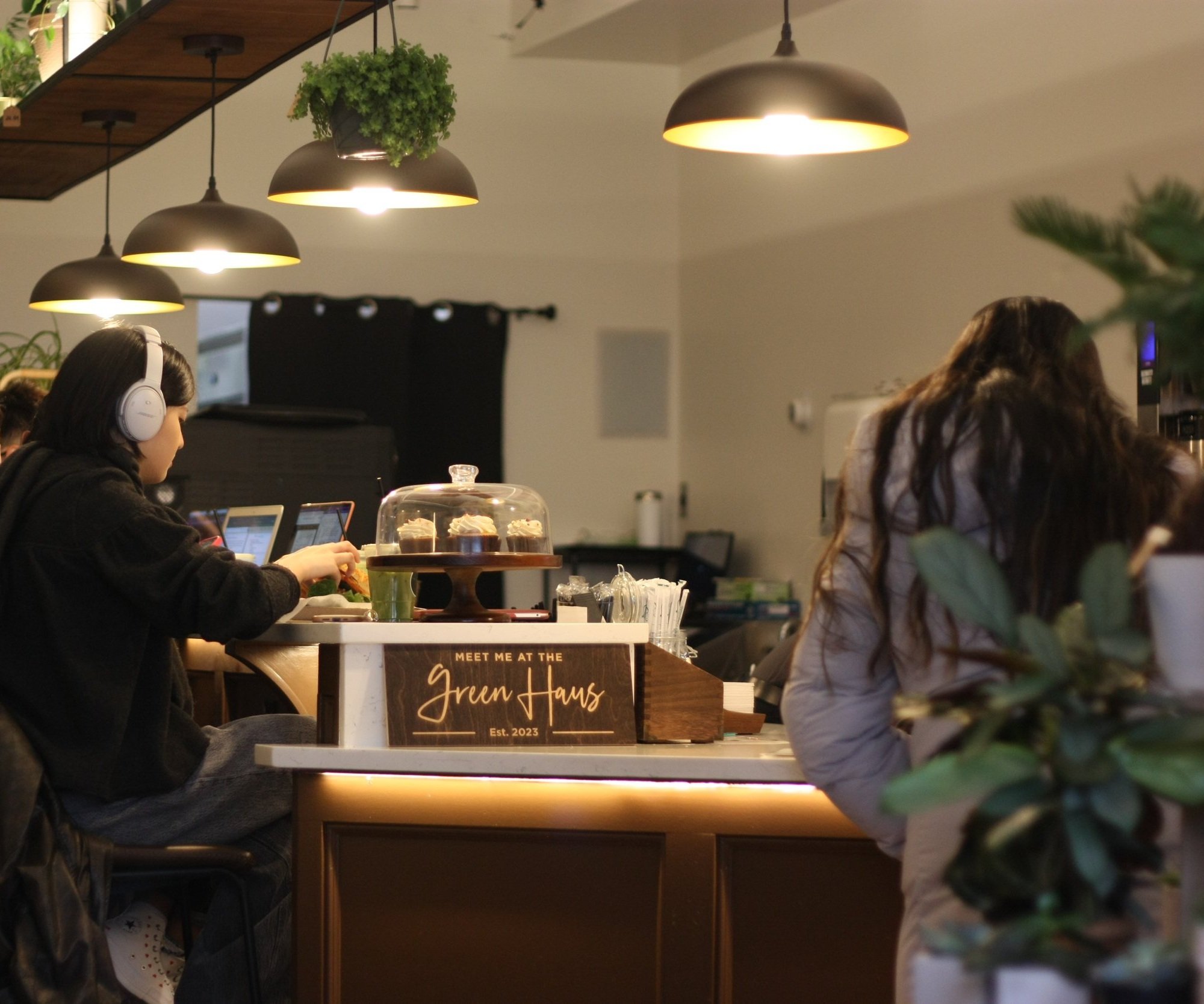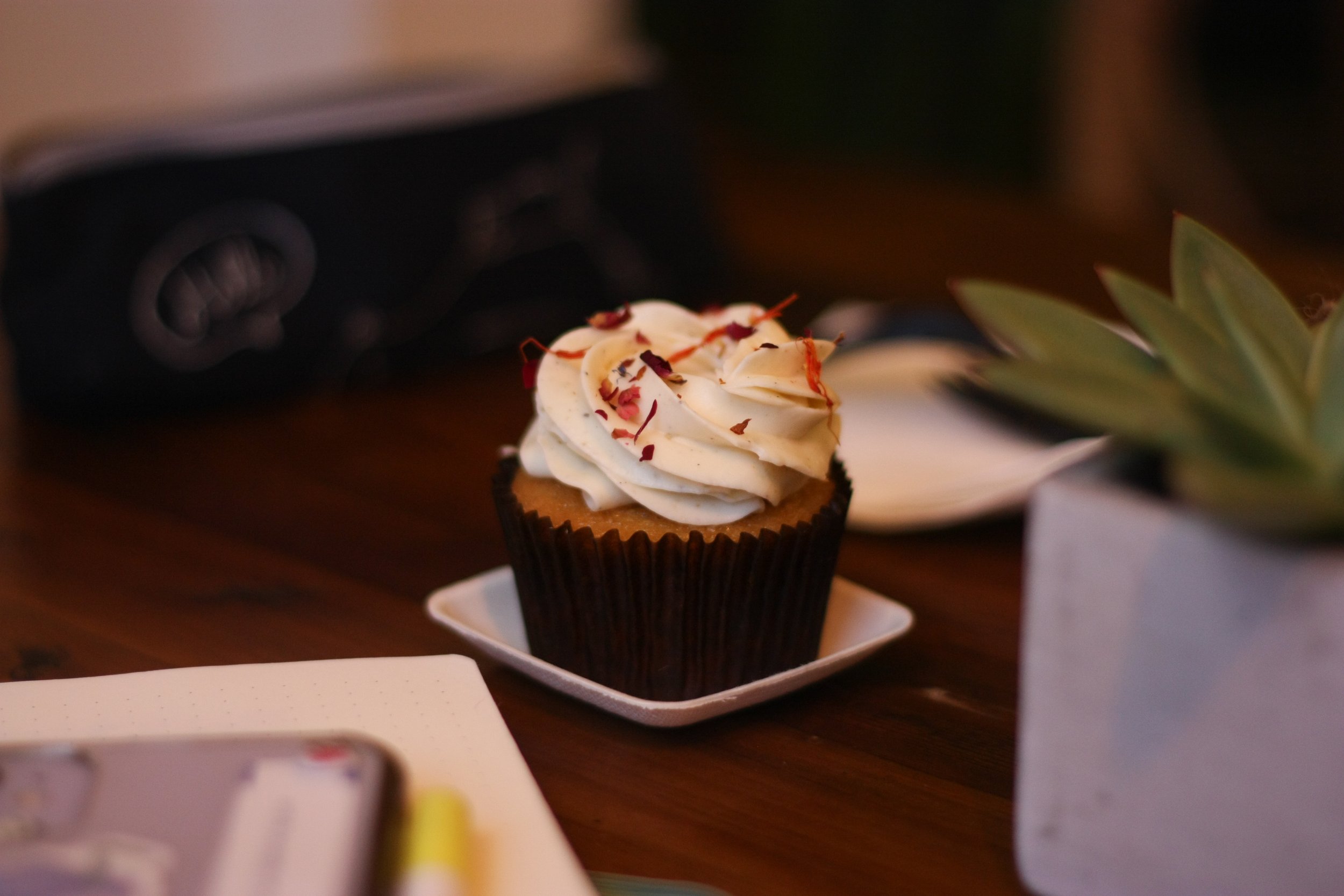College, Culture and Coffee
A look into cafes and student life around Boston



Photos by Corinne Davidson
Stepping into a Boston cafe, coffee machines whir, the smell of fresh coffee and baked goods waft through the air and students occupy every corner.
From the Tattes that scatter the city to the local coffee shops tucked away in the streets surrounding Boston Common, Boston has the most coffee shops per capita, with nearly three times more coffee shops than the average city.
The cafes around Boston cultivate community in unique ways with their different cultural backgrounds, styles and environments. The rich cafe culture provides a welcoming and intriguing environment for students across the city to engage with.
“Boston is such a big school town,” said Leah Parrott, a senior at Boston University (BU). “[Cafes are] a big space for people to do schoolwork off-campus.”
Parrott worked at Pavement Coffeehouse on Boylston Street, steps away from Berklee College of Music’s campus. She said that most customers she served were students doing schoolwork or meeting up with friends.
Besides serving coffee at Pavement, Parrott returns to cafes as a workspace because they provide an opportunity to get away from her usual study spots on campus.
“I think it’s just helpful to switch up your scenery,” Parrott said. “Other people are around you, so you’re subconsciously motivated. You’re like, ‘Okay, all the other people seem to be doing something. I guess I should too.’”
Jada Araki, a junior at BU, works at Blue Bottle Coffee, which has several locations around Boston. She has worked in cafes both in her home state of Hawaii and in Boston, but noted that “cafe culture is definitely more prominent here in Boston.”
“It’s really nice that there are so many cafes that you can go to,” Araki said. “Even on campus, you can go to Caffé Nero or Pavement to just study.”
Ada Lin, a sophomore at BU, worked at Matcha Cafe Maiko in the Fenway area until this summer. While at work, Lin said that she saw many students come in, order a drink, and sit to study.
“College students love to [do] work at cafes,” she said.
Boston is home to over 100,000 college students, according to the Boston Planning and Development Agency. Students make up such a noticeable portion of cafes’ clientele that summers are significantly less busy at the cafe where Lin works.
A student herself, Lin enjoys going to cafes in her free time because the environment is one in which she can focus and stay on task.
“Sitting in a cafe, doing work and observing the people around me and how they’re all so focused on doing work… motivates me to really focus on what I’m working on and to not procrastinate,” Lin said. “The environment plays a role in how well I perform.”
Parrott spent two years at New York University and transferred to BU. Comparing cafes in New York to those in Boston, Parrott said that the culture is significantly different.
“One of the main things, which is actually small, is here I noticed people will ask someone else to watch their laptop and stuff when they go get up to get their coffee or go to the bathroom,” Parrott said. “In New York, I would actually never trust anyone with that.”
Phineas Phan, a junior at BU, and his family recently opened Green Haus Cafe in Mission Hill. The cafe used to be a boba shop which Phan described as having a “cold atmosphere.” When Green Haus opened Phan wanted to make sure it had a welcoming environment because he works best in that kind of setting.
“I need a space [that’s] welcoming, and cozy where I can just go in and grab food if I want, come back to my work, just sit all day if I want to,” Phan said.
On top of selling food and drinks, Green Haus Cafe has all the plants in their cafe up for sale. Phan said that he and his family were inspired to include the plant aspect of their cafe because they had a big garden back at home in Vietnam and wanted to bring a part of that to Boston.
“Everything you see in here, it's all put there with purpose. Nothing is random. Because we view the store as like an entire object,” Phan said.
Boston cafes offer welcoming environments that bring the community together. With their unique traits, atmospheres and products cafes will likely continue to be an integral aspect of Boston culture.
“People around here don't really have the time to enjoy those kinds of things (the experience of cafes). But we adapt,” Phan said.